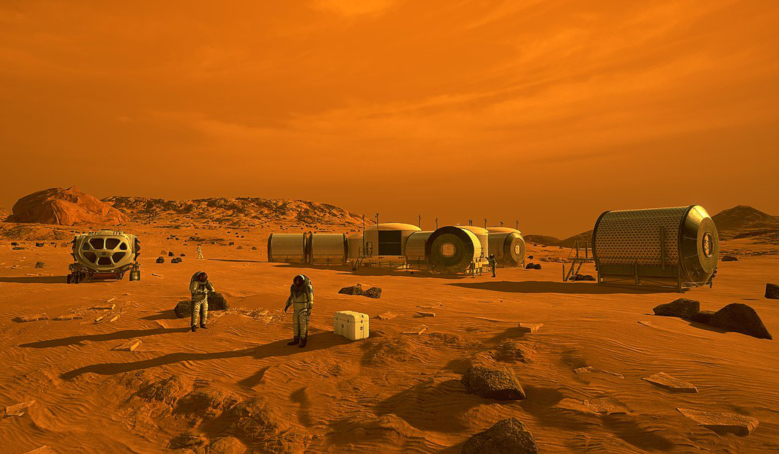A controversial bill rejecting the White House’s plan to push forward with a human return to the Moon by 2024 has been put forward by top Democrats and Republicans on the House committee that authorises NASA activities.
The 102-page bill submitted on 25 January, 2020 instead favours human exploration of Mars stating that “the goal of NASA’s Moon to Mars program shall be to land humans on Mars in a sustainable manner as soon as practicable.” No date is set for an actual landing on the Red Planet, but a deadline of 2033 for humans to orbit Mars is specified in the bill.
However, the push for Mars is coming at an expense to previously welcomed lunar projects. Ventures such a lunar outpost or In Situ Resource Utilisation (ISRU) are being sidelined and activities on or around the surface of the Moon that do not contribute to the goal of landing humans on Mars, will not be included in the new programme, says the bill.
If these projects are pursued by NASA, they are to be budgeted outside the Moon to Mars programme.
With many seeing the establishment of a moon base as a necessary platform in reaching Mars successfully, the bill has drawn lots of criticism from those within the industry by saying that it represents a backwards step by the US government away from a more ambitious agenda for space exploration.
Even the proposed lunar Gateway - a base in lunar orbit used as a platform for astronauts heading to the Moon and a key element of NASA's Artemis program – could be 'repurposed’ under the new bill.
Instead of a lunar Gateway, the bill advocates the requirement of a “Gateway to Mars” in cislunar space or at a Lagrange point. The martian Gateway, that specifically “shall not be required for the conduct of human lunar landing missions,” will serve as as a testbed for the systems and operational techniques needed to transport crews to, from, and during operations in Mars orbit or on the surface of Mars.
The Gateway, which shall be open and available for international participation and use, will be developed to operate autonomously and to be crew-tended, as needed, on an intermittent basis, says the bill.
International participation in the form of collaboration is also called for in getting elements of the Moon to Mars program implemented, including the “Gateway to Mars,” but any partner participation will be under NASA leadership.
Key to providing the heavy-lift capability to carry out the Moon to Mars Program is the Space Launch System (SLS), and the Exploration Upper Stage, or EUS. While other aspects of the Artemis mission might be facing cut-backs or redundancy, both the SLS and EUS featured heavily in the bill despite many reports surrounding funding issues.
Boeing is NASA’s lead contractor on both the SLS core stage and the EUS and work on the EUS is expected to surge this year as the company gets ready for the SLS’s inaugural flight in 2021.
Interestingly, the new bill also directs NASA to develop a human lunar lander “as an integrated lunar landing system carried on an Exploration Upper Stage-enhanced Space Launch System,” known as SLS Block 1B. This would be in place of multi-component landers launched on commercial rockets that would then be stationed at the Gateway.
This simplified specification closely resembles a design recently put forward by Boeing, who proposed a ‘fewest steps to the Moon’ approach that minimises mission complexity.
Closer to Earth, the bill extends US operation of the International Space Station (ISS) for another four years, to 2028, and also has a provision for endorsing research on technosignatures; signals that could be used to indicate the existence of intelligent life beyond Earth.
“[The ] bipartisan NASA Authorization Act of 2020 is the product of hearings, testimony, and careful work to set up NASA and our nation’s civil space program for success,” said Rep. Kendra Horn (D-Oklahoma), chair of the space and aeronautics subcommittee of the House Committee on Science, Space and Technology and a sponsor of the bill.
The bill’s other cosponsors include Rep. Brian Babin (R-TX), Rep. Eddie Bernice Johnson (D-TX), and Rep. Frank Lucas (R-OK).
“Americans should be the first to set foot on the red planet, and (this act) moves us closer to that goal by directing a steady and sustainable course of action,” Horn said in the same statement. “Space should not be a partisan issue, and I am proud of the across-the-aisle teamwork which made this legislation possible.”











